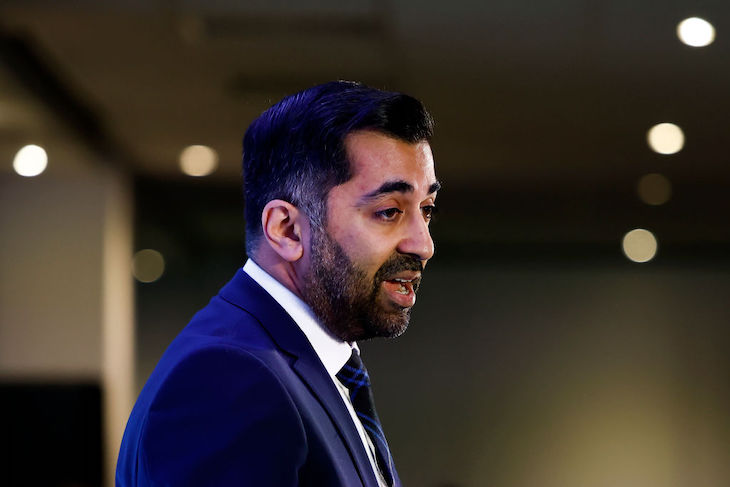Humza Yousaf, the new First Minister of Scotland after his victory in the SNP leadership election, deserves his moment in the sun. Yousaf is Scotland’s first ethnic minority leader and the first Muslim leader of the governing party. Legitimate questions about whether he is up to the job must wait while credit is given for the scale of his achievement in reaching the top of Scottish politics at the tender age of 37. Yousaf’s triumph heralds another significant milestone in the rapidly changing political complexion of the United Kingdom: the barriers to progress for those from non-white backgrounds are disappearing, a remarkable development that would have been implausible just a generation ago.
This transformation has come about in a uniquely understated British way and makes a mockery of those who suggest that the UK is an irredeemably racist society. The backgrounds of those now occupying the highest offices in the land tell a different story.
Rishi Sunak, a Hindu whose parents arrived as immigrants to this country, became the youngest British prime minister of modern times when he moved into Downing Street last year at the age of 42; Sadiq Khan, a Muslim from an immigrant working-class family, has been the mayor of London since 2016; Anas Sarwar became the first Muslim to lead the Scottish Labour party just over two years ago.
This transformation has come about in a uniquely understated British way
A succession of ethnic minority ministers — including Sajid Javid, Priti Patel, Kwasi Kwarteng, James Cleverly and Suella Braverman — have all occupied some of the most senior posts in government in recent years. There is no modern democratic society anywhere that matches Britain when it comes to this kind of equality and opportunity at the very top of politics.
Europe’s leaders, often quick to suggest that their own countries do things better than Britain, should take note. In France, for example, there is almost no chance of an ethnic minority president occupying the Elysee Palace anytime soon. Diversity in president Macron’s cabinet comes in relatively junior positions, in the form of Rima Abdul Malak, the culture minister, whose family fled Lebanon during its civil war, and the education minister, Pap Ndiaye, whose father is Senegalese.
Italy gained its first black cabinet minister as recently as 2013, when Cecile Kyenge, who was born in the Democratic Republic of the Congo, became integration minister; she suffered death threats and vicious racial slurs. Cem Ozdemir was appointed to the food and agriculture ministry in Olaf Scholz’s three-party coalition, becoming Germany’s first federal government minister of Turkish origin.
The UK is simply in a different league to its European neighbours, due to strong anti-discrimination legislation as well as a history of collecting relevant data in critical areas such as education and employment. Much of this remarkable progress has come under recent Tory governments: Boris Johnson, whatever his other failings, led the most ethnically diverse administration in British political history. Sunak’s government has largely followed a similar trend. This is in sharp contrast to Labour which continues to trail far behind the Tories, hampered by its inability to escape the ideological clutches of divisive identity politics as the only answer to inequalities.
Now that there are a significant number of people in power from all walks of life, the focus is moving away from their backgrounds and more questions are being asked about their policy positions and actual performance in the job. Rishi Sunak’s time in office will be judged on whether he can tackle the small boats crisis, combat inflation and rescue the economy. His Hindu faith is very much secondary to this.
In Scotland, Humza Yousaf inherits a bulging in-tray, with a struggling NHS, the economy in crisis and considerable in-fighting at SNP headquarters. Is there anything in his past record of underperformance as a minister that suggests he can succeed in the top job? Can he reverse the Scottish government’s dire record on public services? Is he capable of imposing his authority over a fractious party?
It is hard to be optimistic and doubts have been reinforced by Yousaf’s lacklustre leadership campaign. The brutal reality is that there are no prizes in politics for diversity alone. It is competence that voters value above all else in their politicians, whatever their background — and that is exactly as it should be.







Comments